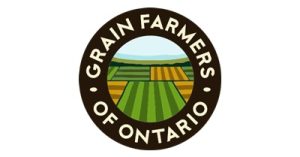Advances in plant breeding and management practices have created new methods to address specific diseases and weed resistance in soybean crops but to meet grower expectations for yield, more work is needed.
University of Guelph graduate student Matthew Rundle is focusing a Master’s project on demonstration research that analyzes crop growth rates over time, node count per plant, pods per plant, and seed weight to determine the contributing factors behind high-yield potential soybeans.
With these efforts, he hopes to gain an enhanced understanding around the interactions of varietal genetics with environmental factors, and with different crop management, while tying it all back to the physiology of soybean development.
Rundle’s advisory committee includes Dr. Hugh Earl, Dr. Istvan Rajcan and Dr. Dave Hooker from the University of Guelph, and Soybean Specialist Horst Bohner of the Ontario Ministry of Agriculture, Food and Rural Affairs (OMAFRA). This is a three-year project started in 2021 and ending in 2023.
Trial results from 2022 are in the analysis stage, and one more year is required to complete this three-year research. Once the research is complete in 2023, the findings will be summarize and shared to inform soybean management practices, and grow the understanding about soybean plant physiology with a goal towards hitting higher yields in the future.
This demonstration research project is the basis for Matthew Rundle’s Master’s degree and is funded by the Ontario Ministry of Agriculture, Food and Rural Affairs (OMAFRA) and the Grain Farmers of Ontario (GFO).
For more on this project, download a copy of the 2022 Discovery Farm Woodstock Field Report here.
PARTNERS


